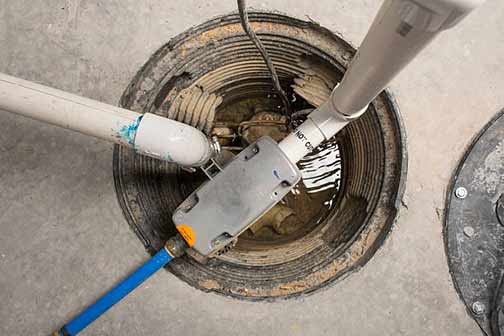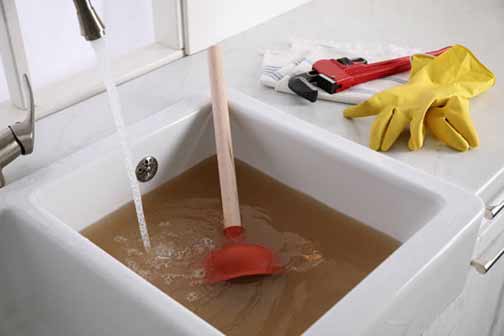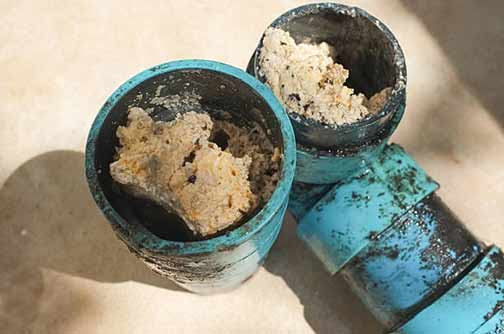Chicago is renowned for its severe winters, characterized by freezing temperatures, heavy snowfall, and icy conditions. The city’s proximity to Lake Michigan often results in lake-effect snow, leading to significant accumulations. These extreme weather conditions can put a strain on your home’s drainage system, making it crucial to prepare it adequately to prevent damage and ensure it functions properly throughout the winter months. Understanding the unique challenges posed by Chicago’s winter climate is the first step in safeguarding your drainage system.
The Importance of Preparing Your Drains for Winter
Preparing your drains for winter is essential to avoid potential issues such as frozen pipes, ice dams, and water damage. When temperatures drop, any water left in your pipes can freeze and expand, causing a burst pipe emergency. This can lead to costly repairs and significant damage to your home. By taking the necessary steps to winterize your drainage system, you can protect your home and ensure that your drains continue to function efficiently during the coldest months of the year. The importance of this preparation cannot be overstated, as it plays a critical role in maintaining the integrity of your home’s infrastructure.
Inspecting Your Drainage System for Winter Readiness
Before winter sets in, it’s important to thoroughly inspect your drainage system for any signs of damage or wear. Look for cracks, leaks, or blockages in your pipes and drains. Check the condition of your gutters and downspouts to ensure they are free of debris and functioning properly. If you notice any issues, address them promptly to prevent further damage during the winter months. A comprehensive inspection can help identify potential problems early, allowing you to take corrective action before the harsh winter conditions exacerbate them.
Cleaning Your Drains to Ensure Unobstructed Flow
One of the most important steps in preparing your drains for winter is to clean them thoroughly. Remove any debris, leaves, or other obstructions that may have accumulated in your gutters, downspouts, and drains. This will help prevent blockages and ensure that water can flow freely through your drainage system. You can use a hose, plumbing snake, or professional drain cleaning services to clear any stubborn clogs. Regular cleaning is essential to maintain the efficiency of your drainage system and prevent issues caused by accumulated debris.
Insulating Exposed Pipes to Prevent Freezing
Insulating your exposed pipes is a crucial step in preventing them from freezing during the winter. Use foam pipe insulation, heat tape, or other insulating materials to wrap any pipes that are exposed to the cold, such as those in your basement, crawl space, or attic. This will help keep the pipes warm and reduce the risk of freezing and bursting. Proper insulation is a simple yet effective measure to protect your pipes from the damaging effects of freezing temperatures.
Preventing Ice Dams to Protect Your Roof and Home
Ice dams can form on your roof when snow melts and then refreezes at the edge of your roof, creating a barrier that prevents water from draining properly. This can lead to water damage and leaks in your home. To prevent ice dams, ensure that your attic is properly insulated and ventilated to maintain a consistent temperature. Additionally, keep your gutters and downspouts clear of debris to allow water to flow freely off your roof. Preventing ice dams is essential to protect your roof and home from water damage during the winter months.

Regularly check your sump pump to ensure it is functioning properly.
Maintaining Your Sump Pump for Winter Efficiency in Chicago
Your sump pump plays a vital role in preventing basement flooding, especially during the winter when melting snow and ice can lead to excess water. Regularly check your sump pump to ensure it is functioning properly. Test the pump by pouring water into the sump pit and making sure it activates and pumps the water out. If you notice any issues, have your sump pump professionally replaced before winter arrives. A well-maintained sump pump is crucial for managing excess water and preventing basement flooding during the winter.
Regular Maintenance Tips for Winter Drainage System Care
In addition to the specific steps mentioned above, there are several general maintenance tips to keep your drainage system in good condition throughout the winter:
- Keep an eye on the weather forecast and take proactive measures to protect your drains during extreme cold snaps.
- Run a trickle of water through your faucets during extremely cold weather to prevent pipes from freezing.
- Seal any gaps or cracks in your home’s foundation to prevent cold air from entering and affecting your pipes.
- Consider installing a backflow valve to prevent sewage backups during heavy snowfall or ice melt.
Following these regular maintenance tips can help ensure that your drainage system remains in optimal condition throughout the winter, reducing the risk of damage and costly repairs.
When to Call a Professional for Chicago Winter Drainage Issues
While many of the steps to prepare your drains for winter can be done on your own, there are times when it’s best to call a professional. If you encounter any major issues with your drainage system, such as severe blockages, leaks, or damage, it’s important to seek the help of a licensed plumber. Additionally, if you’re unsure about how to properly winterize your drains, a professional can provide expert advice and assistance to ensure your system is ready for the cold weather. Knowing when to call a professional can save you time, money, and stress, ensuring that your drainage system is properly prepared for winter.
Conclusion: Ensuring a Worry-Free Winter with Proper Drainage Preparation
Preparing your drains for Chicago’s harsh winters is a crucial task that can help prevent costly damage and ensure your home’s drainage system functions properly throughout the season. By understanding the importance of winterizing your drains, inspecting and cleaning your drainage system, insulating exposed pipes, preventing ice dams, maintaining your sump pump, and following regular maintenance tips, you can protect your home from the challenges of winter weather. Don’t hesitate to call a professional if you encounter any major issues or need expert assistance. With proper preparation, you can enjoy a worry-free winter and keep your home’s drainage system in top condition.


